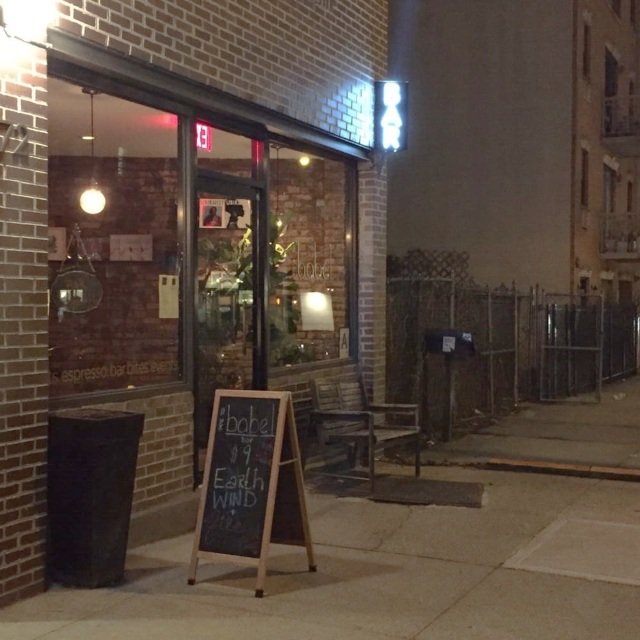Lawmakers Demand Transparency On Surprise, Multi-Agency Raids On Local Bars And Clubs
Feb. 12, 2019, 3:30 p.m.
'I'm still very skeptical there's a need for this type of enforcement, particularly when there's no instance of violence taking place,' City Councilmember Stephen Levin said at a hearing yesterday.

Ode to Babel
Ode to Babel, a narrow, 750-square-foot bar in Brooklyn’s Prospect Heights, was filled with people drinking and dancing one Friday night in October, when all at once, some 30 city and state officials showed up, according to Marva Babel, one of the owners. The crew disrupting the revelry included police officers in bullet-proof vests as well as representatives of the State Liquor Authority, the Fire Department, the city Department of Health and Mental Hygiene and the city Department of Environmental Protection. By the time they left, Babel said she had incurred roughly $2,000 in fines, some of which she successfully contested with the help of a consultant.
An SLA spokesperson confirmed that the bar was charged for five violations following an inspection on October 20th. The violations included one for “pre-mixing” drinks, a violation for failure to have food, alleged overcrowding, and allegedly excessive noise. Babel pleaded not guilty to all of the SLA violations.
“We were a spectacle,” Babel told City Council members Monday. “Our patrons stood in disbelief.”
Babel was one of several nightlife proprietors who testified during a Monday City Council hearing on coordinated raids like this one, which are conducted as part of an NYPD-led program known as MARCH, or Multi-Agency Responses to Community Hotspots.
As many as 203 bars and music venues across the five boroughs were included on lists of establishments to be targeted in MARCH operations last year, but the city doesn’t have an exact number of how many were actually visited, said Assistant Deputy Commissioner Robert Messner, commanding officer of the NYPD’s Civil Enforcement Unit. Usually, Messner said, MARCH aims to visit four to six establishments in the course of a night, but rarely gets to all of them.
Councilmember Stephen Levin is the primary sponsor of a bill that would help shed light on the shadowy enforcement tactic. The legislation would require the Mayor’s Office of Criminal Justice to file a quarterly report detailing the number of inspections conducted as a part of MARCH operations and their outcomes, including whether any of the establishments targeted end up shutting down.
Like many of the nightlife advocates organizing under the hashtag #talksnotraids, Levin said he doesn’t think the dramatic MARCH visits are necessary at all. Individual agencies such as the Health Department and Fire Department routinely conduct their own inspections, Levin noted.
“I’m still very skeptical there’s a need for this type of enforcement, particularly when there’s no instance of violence taking place,” Levin said.
The reasons why venues end up getting targeted in MARCH operations are wide-ranging and could include reports of noise complaints, theft, underage drinking or fights breaking out, said NYPD representatives at the hearing.
“Prior to recommending a location for a MARCH operation, both the precinct’s neighborhood coordination officers and crime prevention officer consider methods of mediating the situation without the need for enforcement,” Messner said.
The NYPD is adamant, however, that no one should ever know they are at risk of getting raided. “DO NOT alert person(s) affiliated with the establishment, its patrons, or community members of the ongoing investigation/operation,” instructs a document the NYPD issued in 2014 on the criteria for a MARCH raid, which was made public through a Freedom of Information Law request.
Nightlife advocates deny that business owners are given an opportunity to remedy problems before being raided and say the raids contribute to unfair stigmatization and potential loss of business for those they target. They also say there’s no central contact to reach out to about why a space landed on a MARCH list or what can be done to get in good standing again.
Babel said she believes Ode to Babel was MARCH’ed because of 311 complaints from the community. According to NYC Open Data, there were about 50 311 complaints about Ode to Babel since it opened in August 2015, mostly for noise.
“Our popularity has translated into disdain by some of our neighbors,” Babel said. “Neighbors that are new to the community, and frankly would prefer to see us silenced—literally and figuratively.”
Babel and members of the advocacy group the NYC Artist Coalition said they believe that bars catering to people of color and the LGBTQ community are disproportionately targeted by MARCH.
Councilman Rory Lancman, who chairs the Committee on the Justice System, suggested that in the future, a representative from the city's Office of Nightlife should sit down with nightlife managers, police and other relevant officials to help mediate unresolved issues, rather than resorting to raids.
The NYC Artist Coalition and other advocacy groups fought for the creation of the Office of Nightlife and the position of night mayor so those entities could serve as a liaison between nightlife establishments and the city. Night Mayor Ariel Palitz has said she hopes to address concerns about MARCH but has yet to commit to any specific initiatives.
In the meantime, several nightlife advocates endorsed the idea of police recording MARCH operations on body cameras to show how intimidating they can be.
“The raid has come and gone, but the financial burden, mental hurt and distress for me as a small business owner and as a mother with small children living directly above my business still remains,” Babel said.
Fewer than 1.7% of the 12,000 establishments with liquor licenses in New York City were subject to MARCH visits last year and the number has been declining. There were 57 MARCH operations conducted last year (with each one targeting four to six establishments), down from 109 when Mayor Bill de Blasio took office in 2014, Chernyavsky said.